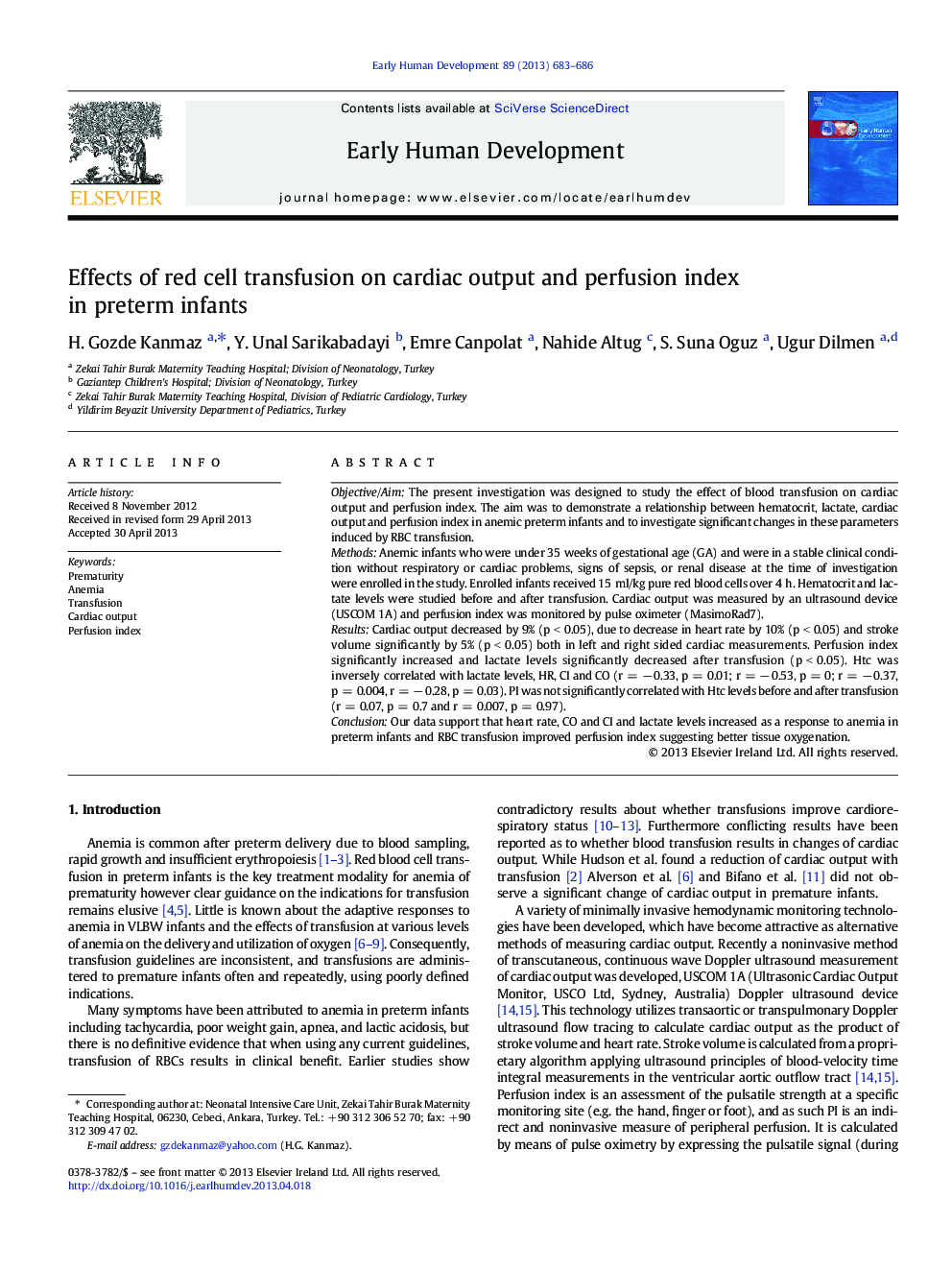| Article ID | Journal | Published Year | Pages | File Type |
|---|---|---|---|---|
| 6172303 | Early Human Development | 2013 | 4 Pages |
Objective/AimThe present investigation was designed to study the effect of blood transfusion on cardiac output and perfusion index. The aim was to demonstrate a relationship between hematocrit, lactate, cardiac output and perfusion index in anemic preterm infants and to investigate significant changes in these parameters induced by RBC transfusion.MethodsAnemic infants who were under 35 weeks of gestational age (GA) and were in a stable clinical condition without respiratory or cardiac problems, signs of sepsis, or renal disease at the time of investigation were enrolled in the study. Enrolled infants received 15 ml/kg pure red blood cells over 4 h. Hematocrit and lactate levels were studied before and after transfusion. Cardiac output was measured by an ultrasound device (USCOM 1A) and perfusion index was monitored by pulse oximeter (MasimoRad7).ResultsCardiac output decreased by 9% (p < 0.05), due to decrease in heart rate by 10% (p < 0.05) and stroke volume significantly by 5% (p < 0.05) both in left and right sided cardiac measurements. Perfusion index significantly increased and lactate levels significantly decreased after transfusion (p < 0.05). Htc was inversely correlated with lactate levels, HR, CI and CO (r = â 0.33, p = 0.01; r = â 0.53, p = 0; r = â 0.37, p = 0.004, r = â 0.28, p = 0.03). PI was not significantly correlated with Htc levels before and after transfusion (r = 0.07, p = 0.7 and r = 0.007, p = 0.97).ConclusionOur data support that heart rate, CO and CI and lactate levels increased as a response to anemia in preterm infants and RBC transfusion improved perfusion index suggesting better tissue oxygenation.
